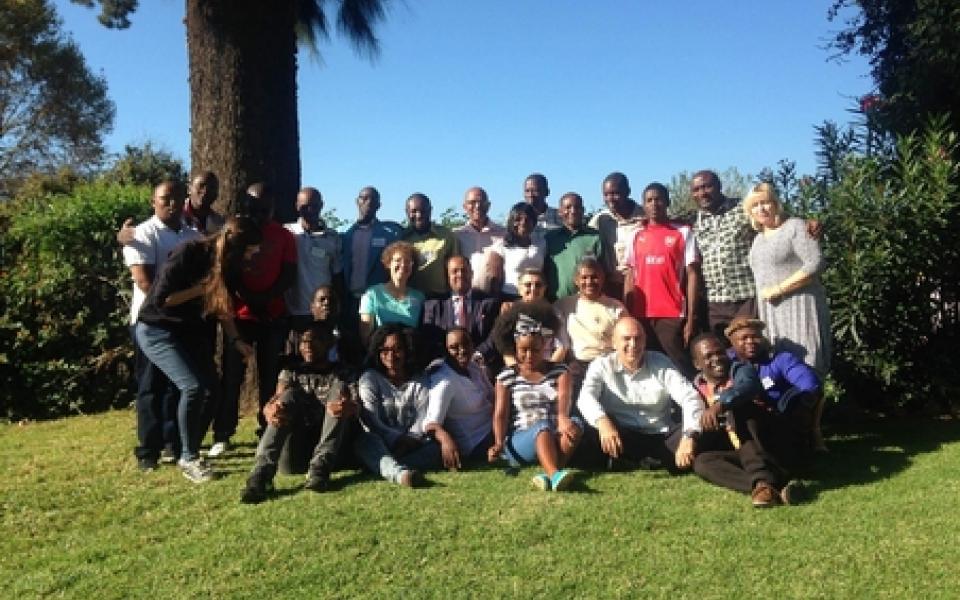
URI CC leaders from Ethiopia, Malawi, Mozambique, and South Africa met from April 14-17 2016 in Johannesburg for a Zonal Conference. Shadreck Kwagwanji, the leader of Missao da Misericódia Abranjente em Moçambique -MIMAMO CC in Mozambique shares his reflections on the proceedings.
As the leader of a CC new to the URI family, I enjoyed learning about the different experiences of my colleagues. I was looking forward to hearing more that would help me make progress on my CC’s vision in Mozambique, as well as how to connect to international dialogues and counterparts, and exchange ideas and experiences.
The emphasis on the need of working in partnership with faith-based organizations, religious leaders, the United Nations, and the African Union Commission to address the issue of peace and security as a common issue is a welcome development which needs to be disseminated deeply to all. Indeed, URI’s engagement in creating a world where all the great traditions’ values and teachings guide people’s service, respecting one another’s beliefs, working together to bring peace, security, reconciliation, healing, social development and a more hopeful future to me is very vital. There is a need for URI’s network to reach remote places, where violence is again erupting as people without education or interfaith understanding become increasingly volatile.
As we discussed at the Conference, peace in Africa will be possible when we start to make peace within ourselves, our families, and in our respective communities, but there is indeed need to walk this talk. Problems erupt because of lack of walking the talk of the Golden Rule by all religions, traditions and cultures. So walking the talk is indeed the key to addressing critical issues such as peace, security, democracy, human rights, respect for each other, gender equity, social development, interfaith harmony, constructive dialogue among nations, conflict prevention and building right human relationship.
The sharing of the challenges different CCs have faced was extremely informative, and I was particularly happy to see capacity-building within the network was a priority. Although CCs are started for different reasons and organized for different people, some of the fundamental things, especially in Africa, are issues we could all relate to, such as conflict, sustainable development, and women’s issues. The matching of our resources and needs would benefit us all, and I hope to see URI objectives really fulfilled if we are able to exchange visits to each other’s countries as we promised.
One thing that struck me was to try as much as possible to involve chiefs and village headmen within the community when forming our CCs or starting a project. They are the best vehicles for the message of interfaith understanding, and can contribute greatly to bringing peace once they understand URI’s mission. As they lead communities of different religions, cultures and traditions, their inclusion will make it easier to get the whole community to put aside their differences for common goals. When I shared the knowledge I gained from the conference with my wife Neema, this encouraged her to come up with a vibrant women’s group within our cooperation circle which is now hard at work with their own projects. Currently, they have started working on establishing a cultural food kitchen in an area which has never seen this kind of collaborative community empowerment work. The women’s determination helped win the support of the men and village headman, who has offered land for this project as well as a different parcel where the Academy of Light is to be constructed.
The conference was a wonderfully eye-opening and educative experience, and I was happy to build relationships with other URI CCs in Africa that will help me as we start to make our visions in Mozambique into reality. Moreover, I felt the flow of a united human spirit and equality, as all the participants gave themselves to their work with happiness and love.
For a full report, please go here.
